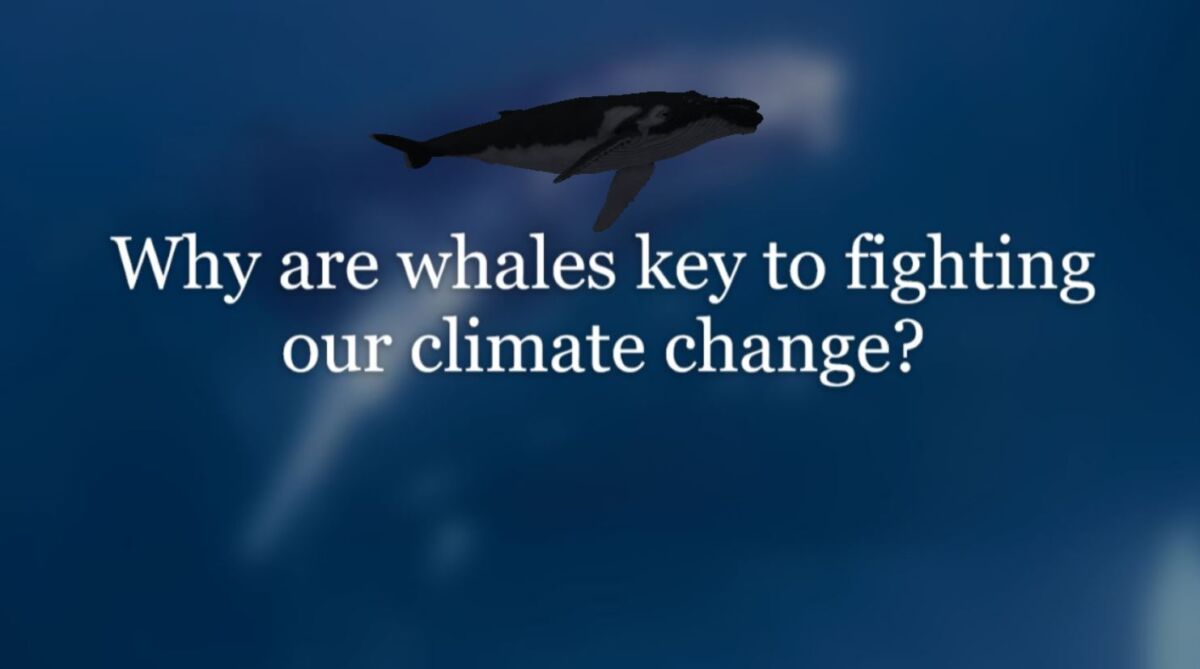Whale beaching in different parts of the world is common knowledge. We come across this news often. Two incidents have come to light about the Whale beached at the Thames in November 2019.
Questions that must arise in our minds are: Are Whales beaching a sign that our oceans are getting hotter than usual? Are they a result of the use of Naval Sonar?
Whales are precious mammals in this day and age.
Our reason is not limited to caring for them because they are living beings but also the benefit they provide to humans as long as they live.
The documented reports show that Whales can capture vast amounts of carbon dioxide by simply their poo and pee.
The reason noted is that it stimulates the creation of phytoplankton and absorbs carbon from the air. The interesting fact is that it holds a lot of carbon. You will see as you read further.
Whales are our partners in the fight against climate change.
As per the IMF study, ‘whale sequesters around 33 tonnes of carbon dioxide on average.’ Some Countries fight and are working to lower their carbon footprint.
However, some of them are killing whales and allowing whale hunting; this puts more strain on their economy and makes it harder for the people working to grow the whale population.
The Takeaway from the study on Whales reveals the following points:
- A great Whale isolates 33 tons of Co2 on average. When it dies off, the body sinks to the ocean floor, taking all the carbon below, which helps other ocean systems.
- A tree captures 48 pounds of C02 each year.
- It means if a tree lives for 100 years, it may be able to capture 4800 pounds of C02 which is approx 2.4 tons only.
- Phytoplankton captures around 37 billion tons of Co2 per year.
If the temperature rises slowly, ocean creatures could start getting extinct in no time. Unstable temperature patches could lead to one species dominating the waters, and others could die off.
What to do if you see any Whale that has beached & is unable to move into the water?
Please contact the smass (Scottish marine animal stranding scheme) for Scotland if you see a stranded whale.
Suppose you are anywhere else in the UK, then it is UKstrandings.org. Here you could find even the contact details of the England & Wales RSPCA & British Divers Marine Life Rescue.
As per the UKstrandings, there are approx 500 Cetacean strandings each year. The UK number mentioned on their leaflet was 08006520333 to report animal strandings. In Wales, it is this: strandings.com.
For live Strandings, you can contact – the Maritime and coast guard agency’s helpline number here: 0870 600 6505
Rubbish is killing the sea life & it is not a new term
The sperm whale that was found stranded in Scotland in November 2019 it had ropes, gloves and different sorts of plastic waste. Birds that rely on the sea creatures too are dying of the same fate in various cases.
Whales are in this fight with us against climate change. Saving whales is the only option for us to help move ahead quicker.
Since the rubbish in the ocean doesn’t look like it’s going down at the speed in which it is going up. These mammals such as whales and other cetaceans become the victim of our leftover.
The question is if it’s going to help the environment if some of us we simply keep on having strikes and talk. Only a part of the population would care and the rest would not bother could put the entire population in danger. In some countries it is doing a great job in fighting the plastic waste.
Being conscious can help beat the worst situation
Now few other countries are not bothered. Are we going to blame them or take the initiative and help them?
We have made continents, broken them into countries, then more countries and even more countries. It is nice to remind ourselves that the place we all live is Earth, and it is the only place where we are at present.
We may have our in-differences, but when Earth gets violent, it does not care if we are in the wealthiest country or poor, whether religious or atheist, right-wing or left-wing and finally, a big multinational company’s area or a local business. All of us suffer from its effect.
Countries that are in the news for Whale meat & Whale hunting
As per whalefacts.org, the countries that eat whale meat include Japan, Canada, Iceland, the Inuit of the USA and Norway. Also, we have come to know that out of these, the countries that allow commercial whaling or whale hunting are Japan and Norway.
The video below shows how a whale gets entangled in fishing gear.
Organizations that try to help stop the whale hunt:
- Green Peace
- American Cetacean society
- Whale & Dolphin conservation
- Whalewatch
- WWF
- Sea Shephard
- Team Orca
- Sierra Club
The most known strategies used by whale hunters for more than a decade were deception, timing, and camouflage.
- Not appear like a whale hunting ship but like a research vessel.
- Smashing the whale by the front of the ship, so it gets injured & dies.
- Could hunt in groups
- A specific countries ship
- Advantage due to fewer MPAs (Marine protected areas)
Methods used by poachers involve
- Deception
- Bribery
- Violate international law
- Absolute disregard for the situation
- Traditional practices
- Profit purposes
- Veil of Tradition, Culture & Livelihood
The Livelihood of the people near the coastal areas is an essential factor because there are many whose Livelihood genuinely depends upon fish. However, some traders might disguise or bribe the locals to hunt for them.
Note: Due to the latest updates, the numbers mentioned here might differ.

